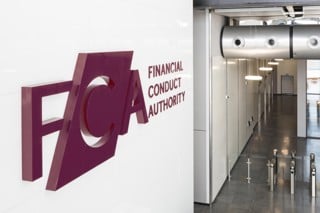Gaps in car dealers’ compliance procedures
Qamar Aziz, associate, Wragge & Co
Application
About 30% of dealers are likely to be getting their application forms wrong, said Qamar Aziz, associate at law firm Wragge & Co. But she emphasised that the FCA would alert dealers in the event of errors that typically occur when choosing the correct categories, credit broking (category C), debt adjusting (category D) and debt counselling (category E). “As a minimum, you are likely to need these categories.”
Full and limited permissions
For the above activities, dealers don’t need full permission. “You can still apply for limited permission provided you don’t engage in other high-risk activities that require full permission,” Aziz said.
She also highlighted the problem of motor dealers already fully authorised for insurance sales that then can’t apply for limited permission for consumer credit sales, even though their business model may have been suitable – a factor affecting 50% of dealers. “The FCA has now said such firms can opt to apply limitations to their authorisation applications. If successful, it triggers a lighter touch authorisation process. It is still full authorisation, but with limitations.”
Adjusting to the new regimes
Authorised firms are now being watched by a much more proactive regulator and there will be more of a need to evidence compliance. So, focus on ensuring:
1. Staff are properly trained in dealing with customers fairly
2. They are recommending the right products with the appropriate information to ensure the best outcome for customers
3. Monitoring and oversight: “A second pair of eyes to look at finance proposals before they are submitted”, particularly with new staff
4. Adequate records are kept to show to the FCA.
Treating customers fairly
“Point of sale disclosure is absolutely crucial in ensuring customers understand product characteristics and dealers, as credit brokers, have a specific obligation to pay regard to a customer’s needs and circumstances when giving explanations and advice, or making recommendations.” This includes whether the product is affordable over the period of the finance agreement.
“There’s still uncertainty on what needs to be done and what good looks like, but ultimately best practice will have to be agreed by the sector in conjunction with the FCA,” said Aziz. “In the meantime, the FCA has said it is not expecting one single approach and will supply further guidance, the emphasis being on outcomes, rather than prescriptive rules.” Aziz said that while there is no FCA requirement to have customers fill in a “demands and needs” questionnaire, it is an approach clients are recommending to dealers: “You can design your own questionnaire to ensure a consistent approach.”
Information requirements: adequate explanations
When proposing credit up to £60,260, dealers are expected to provide adequate explanations, but some lenders now provide it for all regulated credit, again for consistency. Customers should be advised to consider the information given.
Information requirements: commission disclosure
A dealer must disclose commissions or fees payable (including introducers and arrangement fees, overrider or non-cash benefit) if it could affect impartiality or affect the customer’s decision. “It’s difficult to see a situation where a commission is payable and it couldn’t have that effect,” Aziz said.
Vulnerable customers
Vulnerable customers are likely to be those on low income, with high debt levels and a lack of savings. Dealerships are considered a high-pressure environment where customers are at risk of making a wrong decision. Dealer staff are expected to explain options clearly and fully and, if a customer does not have a good understanding of English, consider giving information to a friend or relative to translate.
Incentives
“Any volume-based bonus or incentive is unlikely to meet with the FCA’s approval unless it can be justified by the level of work involved,” Aziz said. The same applies to commission that varies by product type.
Financial promotions
Aziz said one in five advertisements across all sectors were non-compliant. Common failings were: lack of clarity on credit and ownership, APR and representative examples being not clear enough, not providing risks and the finance or price not applying to the vehicle shown.


















Login to comment
Comments
No comments have been made yet.